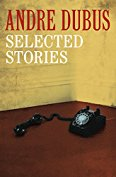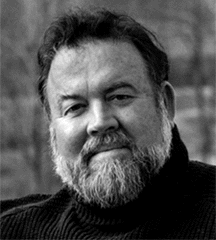

I finished “Adultery,” the long short story by Andre Dubus, this morning. It really touched on some reasons why adultery is such a fascinating theme. I have written about it before, and there’s a few stories I know about it that I’d like to write. Now, I wonder if I could do it justice.
Dubus’ story begins with a woman who discovers her husband is having an affair. Actually, it begins as about a wife making dinner for her family and going off to see her lover, a former priest. This is not only the present moment of the story, but thematically important. It begs the reader to judge her, Edith, the story’s main character, first. This judgment, prior to knowing the context, reminds us by the end of the story that sin begets sin. And whether you blame Edith (Eve? Lilith?) for her affairs or not, she certainly feels it is a sin.
But before this first scene, we learn that she previously discovered her husband was having an affair first. When she confronts him, he admits it, and further, that he doesn’t believe in monogamy.
Fidelity? she asks him.
See? he says. You distort it. I have been a faithful husband. I have been discreet, tried to save your face.
What results is an open relationship that, over the years, begins to tear Edith apart.
In the story’s present moment, her lover, a former priest, is dying of cancer. Much of the latter parts of the story is about their relationship in the face of death and sin, and the ultimate simplicity of ritual and faith. The Eucharist is something Joe, the former priest, has always felt transformed by, but he can no longer do it in light of the adultery, justified as it may be. This allows for a wonderfully complex meditation on the relationship between the spirit and the flesh, between marriage and free love, between ritual and freedom. We all want the kingdom, but we don’t want G*d in it.
Perhaps my favorite theme touched is the idea that ritual simplifies faith to where understanding becomes unimportant. When Joe takes his final communion from another priest, it doesn’t matter to him whether the priest understands his sin. The ritual holds a place for the spiritual understanding between Joe and the world, between Joe and his G*d.
*
There is one other thing the story touches on, but I’m not sure how it fits in. Hank, the husband, is a fiction writer, working on selling a novel. Writing is what he seems most faithful to, at least in Edith’s eyes. I know little about Dubus’ biography, but whenever a writer chooses to write about a writer, they have to assume that at least a tenuous connection will be drawn to their own life. I know Dubus was married multiple times, wrote a novel, though he eventually focused on stories. One is forced to wonder if this were perhaps a fictional account of the relationship with his first or second wife, or a composite of the two. It doesn’t matter, really, except that the story follows Edith so closely, sympathizes primarily with her.
There is a remarkable story by Adam Johnson in his collection called Fortune Smiles, told from the perspective of the wife of a Pulitzer Prize winning author. The narrator, the wife of the writer, is also a writer, and she fights jealousy at her husband’s success. She is also fighting breast cancer. These plot points are very similar to facts in Adam Johnson’s biography.
These are both discomforting narratives in that the writer is forced to judge and empathize with their proxy as well as their loved one. Interesting because in both stories the loved one’s perspective takes precedence.
I am not one for getting lost in the woods of a writer’s biography. In fact, I like to view the biography as a part of the larger fiction that surrounds the author’s work and literature itself. This may be unfair to their loved ones, but fiction is a religion the same as Christianity. There are rituals and rites with it, writers are its martyrs.
That in mind, I’d like to submit that maybe the important thing about Dubus’ Hank being a writer is to underscore the capacity and necessity for empathy in fiction. Fiction is and needs no justification, however, if it needed a utility, it would be that it exercises the human capacity for empathy.
I am ordinarily skeptical about writers writing about writing and writers. Perhaps I am getting soft in my old age but here I forgive it. Here, it draws an important connection between religion and fiction. Faulkner famously said facts and truth don’t have much to do with each other. Truth has everything to do with being able to see things in a larger context; if not entirely objectively like G*d, then at least at enough of a distance to imagine what G*d might see.
Credits: Book Cover, Author photo, italics
